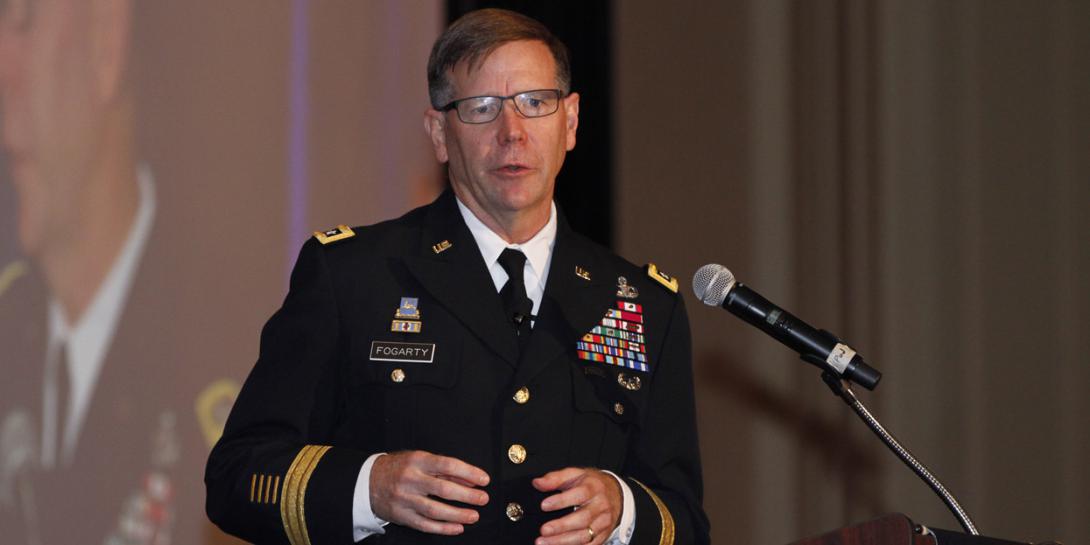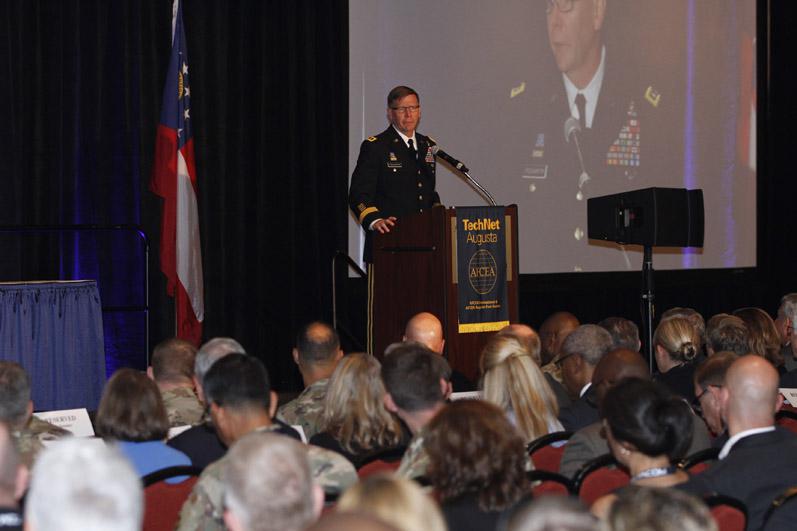Taking the Cyber Out of Cyber Command
Lt. Gen. Stephen Fogarty, USA, commander of U.S. Army Cyber Command, suggests the command could get a new name and says he would recommend the same for the U.S. Cyber Command.When the Army command was first established in 2010, Cyber Command was the appropriate name, but that is not longer the case, he asserted. “I think we’re well past that now. We’re at the point where, in the future, it’s going to change to something like this: Army Information Warfare Operations Command or Army Information Warfare Dominance Command.”
LTG Fogarty, @ARCYBER: predicts creation of an Army Information Operations Command or Information Dominance Command as the convergence of cyber, intelligence, electronic warfare and signal continues. #AFCEATechNet
— George Seffers (@gseffers) August 21, 2018
It is not the first time Gen. Fogarty has publicly suggested a name change for his own command, but now he has gone a step further. “I think you’re going to see the same thing up at Fort Meade with [U.S.] Cyber Command. At least that’s what I would advise,” he said.
The reason for the change is that cyber capabilities are converging with other realms, including electronic warfare, intelligence and signal. “What I really try to do is instill the lessons we’ve learned from operating in the cyber domain alongside those that are operating in the information environment. What I’ve come to believe is that, frankly, the overlap is much deeper, is much greater than these bumps in the night,” he said.
Fogarty made the comments while speaking at the TechNet Augusta conference in Augusta, Georgia, on August 21. “That’s the next stage of this is actually bringing all of this together. Yes, it is to integrate these capabilities, integrate the domain and the information environment. What I believe is that our adversaries are doing exactly that,” he said.
He added that breaking down stovepipes and bringing together offense, defense, cyber, intelligence, signal, electronic warfare, fires, information operations and space provides combat commanders at the Army and the joint force level the ability to two basic things: see the adversary and see themselves. “If they can accomplish both of those, then that allows them hopefully to make optimal decisions,” Gen. Fogarty noted.
LTG Fogarty, @ARCYBER: At Army Cyber Command I have three missions--conduct #cyber missions, conduct #electronicwarfare missions and conduct information operations missions.#AFCEATechNet
— George Seffers (@gseffers) August 21, 2018
The general also emphasized the need to decide and move more quickly on the battlefield. “Right now we’re in a race. And we’re in a race with pretty sophisticated adversaries,” he said.
While the Army has improved in the cyber realm, adversaries are not exactly sitting on their laurels. Two years ago, it took Army cyber operators an average of 150 days to detect an intrusion into their networks. That is now down to 97 days. “But this is the problem,” the general said. “The adversary is becoming more capable, more aggressive.”
LTG Fogarty, @ARCYBER, says we will see more nation state #cyber attacks. "We are going to have to up our game."#AFCEATechNet
— George Seffers (@gseffers) August 21, 2018
Once inside a network, an adversary can own that network in three days, Gen. Fogarty noted.






Comment
Cyber is fine. It's simple
Cyber is fine. It's simple and conveys something different from "ITsec." Perhaps we need to redefine "cyber" a bit.
He has a good point. Either
He has a good point. Either cyber needs a broader definition or it is part of information warfare. The Army is on the right path seeing cyber, EW, SIGINT, comms and spectrum together. Wireless signals are the medium for us to communicate, deny enemy communications, defend and conduct offensive cyber events and exploit signals in most battlespace domains.
Comments